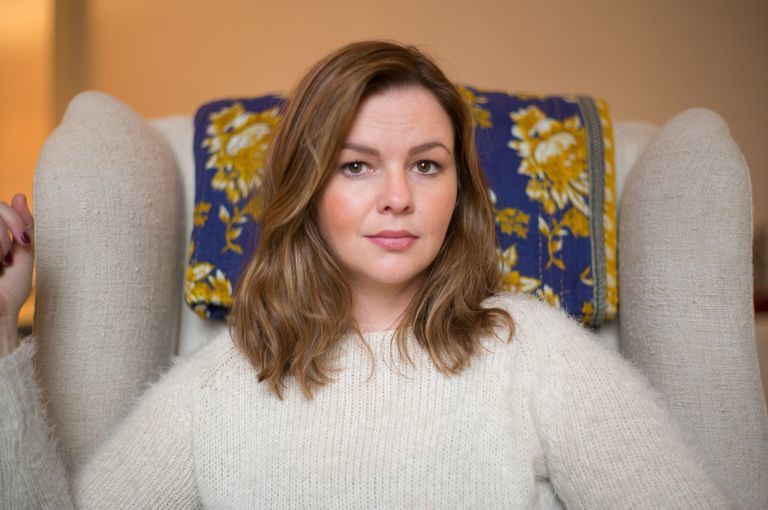Arts & Culture
Amber Tamblyn Talks New Male Sexual Assault Novel
The actress and author talks about her new novel Any Man.
Your new novel, Any Man, follows the story of a female serial rapist who preys on men. Why did you choose to explore sexual assault and its effects from that angle?
I encourage people to think of this story as means of broadening the conversation about gender and rape culture. To me, men are a part of this conversation, and if you look at the bravery of someone like [actor] Terry Crews, for instance, you’ll see that that is really true. Part of the larger conversation that we need to be having is looking at who exactly is affected by sexual assault.
What message do you want to convey through this story? What do you want readers to learn from it?
I want people to have a better sense of empathy. It’s not just the experience of understanding what people go through; it’s also the experience of wanting to help us change the culture. I think there’s been so much numbness around conversations about sexual assault. We’re in the 37th week of the #MeToo movement; it just happened, and people are acting like we’ve been here for years holding men back. And that’s really disappointing. I would love to really find a way to have larger, more difficult conversations which include looking at our own actions. And by us, I mean women. Looking at how we treat other women, how we treat other genders, all of those types of things.
What does this novel add to the national conversation?
I started working on the book three-and-a-half years ago, and I never could have imagined that it would come out right now in the middle of all of this. I think there was a real sense of fear, a sense that people might not be ready to have these more difficult conversations, and I understand that [the story] can be very jarring and upsetting for some people.
But at the same time, I think if we’re going to talk about huge, fundamental, endemic cultural change, we have to first talk about what inclusivity means. And we have to ask, who are we leaving out of the conversation? Are we leaving trans women out of the conversation? Are we leaving women or men of color out of the conversation? We have to look at who is still being affected and harmed that we are not representing. This [book] is an effort to do that while also saying that this is an indictment of our media culture and the 24/7 news cycle. It’s a way for us to look at that and ask, even when we think we’re being our best allies, are we helping or are we further hurting?
How did you help co-found the Time’s Up movement?
It started with several women, across industries, who were fed up. It was right after the #MeToo movement had broken open and all of us were not only sharing our own stories, but the stories of our mothers and grandmothers and daughters. It was extremely illuminating to see how far-reaching such atrocities go. From a restaurant worker all the way up to some of the biggest movie stars in the world. To know that we were collectively connected through that pain was pretty profound. We all got in a room together and asked each other: What can we do? How can we change things and create direct action so that no woman or man ever has to say #MeToo again?
How has speaking out publicly against sexual assault affected your life?
It comes with its pros and cons. I’m very happy to be able to speak for the pain of a lot of women who don’t feel comfortable or safe enough to talk about some of these things. At the same time, it’s put me in a strange spotlight that I don’t think I ever expected.
You were recently added to The Academy of Motion Picture Arts & Sciences, the body that votes on nominees for The Academy Awards. What does that inclusion mean to you?
What I love most about it is that it says that while our business is slow-changing, at least they’re doing it. At least it’s beginning now. Whereas before, it wasn’t even part of a conversation. I think that’s really wonderful. It’s going to be a long, slow road, and it’s going to take a long time for the larger effects of change to really make their marks on society, and certainly in the entertainment business, but I think more inclusion and more equality is always the answer.
Join Amber Tamblyn on August 1 at Creative Alliance for a reading, book signing, and Q&A session.
